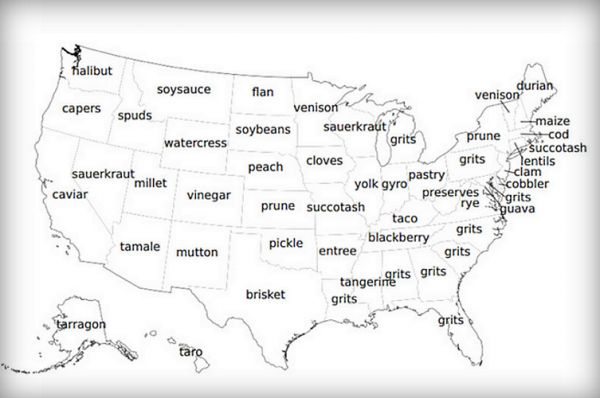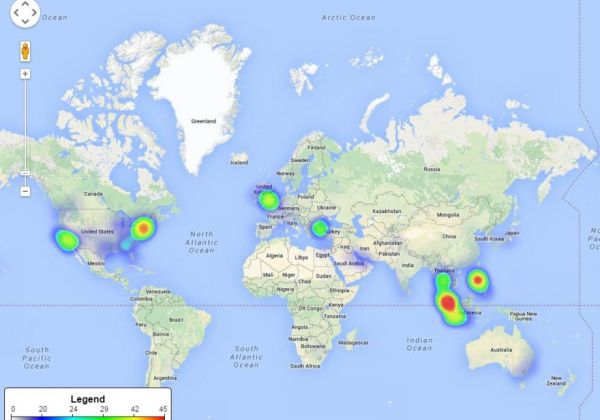In the real world however, it’s working and working quite well.
by Ezra Klein

Before Obamacare launched,
wingnut outlets warned that the law would collapse as insurers shunned the overpriced, over-regulated insurance exchanges. "More Insurers Drop Out Of Exchanges," warned Faux Business. "Three Major Insurers Flee California's Obamacare Exchange," said
HotAir.com. "The President's health care law has almost completely failed to increase insurance market competition," wrote the Heritage Foundation.
It continued after the law's launch. I remember, a month or two after
HealthCare.gov
opened (and crashed), being on a panel with a conservative writer who
said that Obamacare might well enter a death spiral as insurers pull out
of the marketplaces.
On Tuesday, the idea that insurers would flee Obamacare joined the long procession of Obamacare disasters that simply didn't happen. Health and Human Services Secretary Sylvia Matthews Burwell
announced
that in the 44 states where numbers were available, the number of
companies offering plans in 2015 would increase by 25 percent. So, far
from fleeing the exchanges, insurers are rushing into them. Competition
is increasing.
This news is not, as I write this on Tuesday evening, being carried on the home pages of Fox Business,
HotAir.com, or the Heritage Foundation. (In case you're wondering, the most recent Obamacare article on
FauxBusiness.com is "Obamacare website still not secure?"; on Hot
Air.com, it's "How many people are poised to lose 2014 Obamacare coverage?"; at Heritage, it's "Why you can't keep your plan under Obamacare, explained in 3 minutes.")
This is the problem in the debate about Obamacare. The two sides live
in different informational universes. A few days ago, the New
Republic's Danny Vinik tweeted a picture of the headlines he was receiving from the wingnut YG Network:
That top headline, "More bad news for Obamacare exchange customers," quotes a New York Times
report that "in
many places premiums are going up by double-digit percentages within
many of the most popular plans." It omits the next two sentences: "But
other plans, hoping to attract customers, are increasing their prices
substantially less. In some markets, plans are even cutting prices."
(The point of the piece is that to get the best price you need to shop
around.)
Articles don't need to play tricks to paint a grim picture for Obamacare
It's easy to give people a skewed impression of Obamacare without ever running a false story. The
Affordable Care Act is a huge law, and at any given moment, there are
some good things happening in it and some bad things happening in it. If
you run multiple articles every day on the problems and nothing on the
broader trends, it's easy to mislead your audience.
Recently, one of the major insurers
pulled out of the Minnesota exchange. The news received huge play in the wingnut media. The
story is real — and it's bad news for Minnesotans. It's just not
representative of the overall trend towards increased exchange
participation. But a lot of wingnut readers don't know that. The Daily Caller, for instance, hit the Minnesota story hard. But on Tuesday, they managed to 'report' on Burwell's remarks without even mentioning the new data she presented on rising insurer participation.
If all you're seeing is an
endless procession of stories that seem to show Obamacare is a disaster,
you're going to think Obamacare is a disaster
My hunch is that relatively few wingnuts realize that premiums are lower-than-expected, and that the law's costs are lower-than-expected ($104 billion lower, as of
April 2014).
(Of course, information loops can go the other way, too: a lot of
liberals probably don't know that of the much-discussed 8 million
enrollees in Obamacare's insurance exchanges, new data suggests only
about 7.3 million stuck around as paying members.)
In wonkier repugican circles, the spin has gotten subtler. They know
that premiums are lower than projected and insurers are joining the
exchanges. So the argument has developed a good-news-is-bad-news
quality.
The fear about government programs in general, and government
health-insurance programs in particular, is that they are overly
generous because they spend other people's money. So repugicans
have, for a long time, been putting forward health-care plans that would
devolve single-payer insurance programs like Medicare to private
insurers that would hold down costs by narrowing networks and managing
care. Then, they figure, Americans can shop around, and the market will
reward the plans that hold down costs and punish the plans that don't.
These ideas were present in the health reforms Mitt Romney passed in
Massachusetts, and Obamacare borrowed heavily from them.
Paul Ryan has also been a key sponsor of these ideas. But
now that they're happening in Obamacare, he's selling it to wingnuts like some kind of catastrophe. "I don't think this is the
kind of country that is going to stand for being told who and where
they're going to get their health care," he
told the Washington Examiner's Phil Klein. As Jonathan Chait
writes:
Except that very dynamic is exactly the way Ryan's own fabled
Medicare plan is designed to work - by having insurance companies lure
customers by competing to hold down prices, in part by excluding doctors
and hospitals that charge too much. Only now, rather than hold up this
scheme of exchanges with private insurers as the silver bullet to solve
America's problems, Ryan is exploiting discontent with it. He is
implicitly promising that people will be able to go to whichever doctor
or hospital they want, regardless of price. Of course he won't say how
he'll pay for that luxury, either.
Obamacare's competitive insurance marketplaces are actually doing what they promised to do: forcing insurers to compete for customers by cutting costs. The Congressional Budget Office
explains
that Obamacare's premiums are cheaper-than-expected because its
insurance features "lower payment rates for providers, narrower networks
of providers, and tighter management of their subscribers' use of
health care than employment-based plans do."
That is an extraordinary sentence: Obamacare is forcing insurers to
run leaner than employers are. If Obamacare were Romneycare does anyone
doubt Ryan — and repugicans more broadly — would be celebrating?
If Obamacare were Romneycare does anyone doubt Ryan would be celebrating?
Obamacare isn't by any means a perfect law and not everything in it
is going right. The law powers a different insurance market in every
state (plus the District of Columbia), so it is perfectly possible for
Obamacare to be a success in California even as there are troubles in
Minnesota. And there continue to be operational issues: there have been
troubling revelations about web site security, and problems verifying the incomes of some enrollees.
On the whole, though, costs are lower than expected, enrollment is
higher than expected, the number of insurers participating in the
exchanges is increasing, and more states
are joining the Medicaid expansion. Millions of people have insurance
who didn't have it before. The law is working. But a lot of the people
who are convinced Obamacare is a disaster will never know that, because
the voices they trust will never tell them.



































